Ditapis dengan

Process Metaphor And Knowledge Management
This paper attempts to develop a metaphor to explain knowledge and perhaps the basic construct of knowledge management, in a way that might add to the practical understanding of organisational knowledge.
- Edisi
- Vol. 34 No. 6 2005
- ISBN/ISSN
- 0368-492X
- Deskripsi Fisik
- 14 p
- Judul Seri
- -
- No. Panggil
- ATC MG ROW p

Managing Organizational Knowledge As A Strategic Asset
Knowledge is a resource that is valuable to an organization's ability to innovate and compete. It exists within the individual employees, and also in a composite sense within the organization. According to the resourcebased view of the firm (RBV), strategic assets are the critical determinants of an organization's ability to maintain a sustainable competitive advantage. This paper will combine …
- Edisi
- Vol. 5 No. 1 2001
- ISBN/ISSN
- 1367-3270
- Deskripsi Fisik
- 20 p
- Judul Seri
- Jurnal of Knowledgw Management
- No. Panggil
- ATC MG BOL m

Knowledge Management Capability-Defining Knowledge Assets
- Edisi
- VOL. 11 NO. 6 2007
- ISBN/ISSN
- 1367-3270
- Deskripsi Fisik
- 19 p
- Judul Seri
- Jurnal of Knowledge Management
- No. Panggil
- ATC MG FRE k
- Edisi
- VOL. 11 NO. 6 2007
- ISBN/ISSN
- 1367-3270
- Deskripsi Fisik
- 19 p
- Judul Seri
- Jurnal of Knowledge Management
- No. Panggil
- ATC MG FRE k

Service innovation through dynamic knowledge management
The purpose of this paper is to report the findings of a study on the management of intellectual capital in Fortune Motors. It intends to highlight how an automobile service firm apply dynamic knowledge management concept to create new service processes which resulted in breaking through the bottleneck of profit loss
- Edisi
- Vol. 109 No. 3, 2009 pp. 322-337
- ISBN/ISSN
- 0263-557
- Deskripsi Fisik
- 19P
- Judul Seri
- Industrial Management & Data Systems
- No. Panggil
- ATC MG SHA s

Knowledge Flow‐Based Business Process Redesign- Applying A Knowledge Map To…
Knowledge flows and business processes cannot be separated because knowledge is inputted and outputted through business processes. Knowledge flows inherit the feature and appearance of corresponding business processes; therefore, one can identify problems within business processes by analyzing corresponding knowledge flows. The methodology is composed of the following sections: knowledge mappin…
- Edisi
- VOL. 11 NO. 3 2007
- ISBN/ISSN
- 1367-3270
- Deskripsi Fisik
- 24 p
- Judul Seri
- Jurnal of Knowledge Management
- No. Panggil
- ATC MG YOO k

Intellectual Capital And Knowledge Management Effectiveness
- Edisi
- Vol. 41 Iss 8 pp. 771 - 781
- ISBN/ISSN
- 0025-1757
- Deskripsi Fisik
- 14 p
- Judul Seri
- Management Decision
- No. Panggil
- ATC MG MAR i
- Edisi
- Vol. 41 Iss 8 pp. 771 - 781
- ISBN/ISSN
- 0025-1757
- Deskripsi Fisik
- 14 p
- Judul Seri
- Management Decision
- No. Panggil
- ATC MG MAR i

Five Critical Knowledge Management Organizational Themes
This study is motivated by the question ‘‘how do organizational routines influence the three knowledge management processes of acquisition, creation, utilization and sharing?’’ and accordingly it seeks to address this issue.
- Edisi
- Vol. 14 No.4 2010
- ISBN/ISSN
- 1367-3270
- Deskripsi Fisik
- 17 p
- Judul Seri
- -
- No. Panggil
- ATC MG PET f

Dilemmas in Knowledge Management
This paper aims to discuss some of the debates that have surrounded knowledge management as a field since its inception in 1990s from the perspective of the dilemmas that they have raised regarding: the notion of knowledge management as a field in relationship to other cognate fields such as information management, and the implications introduced by different approaches and perspectives on mana…
- Edisi
- Vol. 29 No. 4/5 2008
- ISBN/ISSN
- 0143-5124
- Deskripsi Fisik
- 24 p
- Judul Seri
- Library Management
- No. Panggil
- ATC MG VAS d

A Business Process Outsourcing Framework Based on Businessprocess Management …
Nowadays, outsourcing has proved to be an enterprise management strategy in the face of globalization and growing competition. The decision to outsource a business process for any organization has far-reaching consequences and risks. The purpose of this paper is to analyse the impact of business process management (BPM) and knowledge management (KM) on reduction of outsourcing risks and pitfalls.
- Edisi
- -
- ISBN/ISSN
- 1463-7154
- Deskripsi Fisik
- 20 p
- Judul Seri
- Business Proses Manajemen
- No. Panggil
- ATC MG MAH a

Laporan pelaksanaan kegiatan workshop knowledge management system and literac…
- Edisi
- 8 Desember 2017
- ISBN/ISSN
- -
- Deskripsi Fisik
- 13 p. + atc., 21 cm.
- Judul Seri
- -
- No. Panggil
- IPC REP IND k
- Edisi
- 8 Desember 2017
- ISBN/ISSN
- -
- Deskripsi Fisik
- 13 p. + atc., 21 cm.
- Judul Seri
- -
- No. Panggil
- IPC REP IND k

Understanding dynamic capabilities through knowledge management
- Edisi
- VOL. 10 NO. 4 2006, pp. 59-71
- ISBN/ISSN
- 1367-3270
- Deskripsi Fisik
- 13 p.
- Judul Seri
- JOURNAL OF KNOWLEDGE MANAGEMENT
- No. Panggil
- ATC MG NIE u
- Edisi
- VOL. 10 NO. 4 2006, pp. 59-71
- ISBN/ISSN
- 1367-3270
- Deskripsi Fisik
- 13 p.
- Judul Seri
- JOURNAL OF KNOWLEDGE MANAGEMENT
- No. Panggil
- ATC MG NIE u

Knowledge development and transfer in a mindful projectorganization
- Edisi
- Vol. 6 Iss 2 pp. 236 - 250
- ISBN/ISSN
- 1753-8378
- Deskripsi Fisik
- 18 p.
- Judul Seri
- International Journal of Managing Projects in Business
- No. Panggil
- ATC MG AND k
- Edisi
- Vol. 6 Iss 2 pp. 236 - 250
- ISBN/ISSN
- 1753-8378
- Deskripsi Fisik
- 18 p.
- Judul Seri
- International Journal of Managing Projects in Business
- No. Panggil
- ATC MG AND k

Know ways in knowledge management
- Edisi
- Vol. 12 Iss 2 pp. 152 - 168
- ISBN/ISSN
- 0969-6474
- Deskripsi Fisik
- 19 p.
- Judul Seri
- The Learning Organization
- No. Panggil
- ATC MG BLA k
- Edisi
- Vol. 12 Iss 2 pp. 152 - 168
- ISBN/ISSN
- 0969-6474
- Deskripsi Fisik
- 19 p.
- Judul Seri
- The Learning Organization
- No. Panggil
- ATC MG BLA k
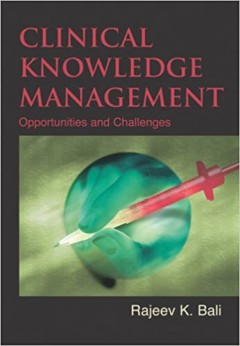
Clinical knowledge management: opportunities and challenges
- Edisi
- -
- ISBN/ISSN
- 1-59140-593-9
- Deskripsi Fisik
- xviii, 334 p.
- Judul Seri
- -
- No. Panggil
- TXT MG BAL c
- Edisi
- -
- ISBN/ISSN
- 1-59140-593-9
- Deskripsi Fisik
- xviii, 334 p.
- Judul Seri
- -
- No. Panggil
- TXT MG BAL c
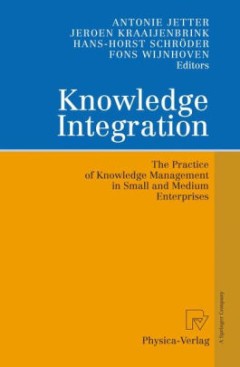
Knowledge integration: the paractice of knowledge management in small and med…
- Edisi
- -
- ISBN/ISSN
- 978-3-7908-1586-3
- Deskripsi Fisik
- vi, 203 p.
- Judul Seri
- -
- No. Panggil
- TXT MG JET i
- Edisi
- -
- ISBN/ISSN
- 978-3-7908-1586-3
- Deskripsi Fisik
- vi, 203 p.
- Judul Seri
- -
- No. Panggil
- TXT MG JET i

Five critical knowledge management organizational themes
- Edisi
- VOL. 14 NO. 4 2010, pp. 507-523
- ISBN/ISSN
- 1367-3270
- Deskripsi Fisik
- 17 p., + atc., 21 cm.
- Judul Seri
- JOURNAL OF KNOWLEDGE MANAGEMENT
- No. Panggil
- ATC MG SUN f
- Edisi
- VOL. 14 NO. 4 2010, pp. 507-523
- ISBN/ISSN
- 1367-3270
- Deskripsi Fisik
- 17 p., + atc., 21 cm.
- Judul Seri
- JOURNAL OF KNOWLEDGE MANAGEMENT
- No. Panggil
- ATC MG SUN f

Effective societal knowledge management
- Edisi
- Vol. 11 Iss 5 pp. 141 - 156
- ISBN/ISSN
- -
- Deskripsi Fisik
- 18 p.
- Judul Seri
- Journal of Knowledge Management
- No. Panggil
- ATC MG WII e
- Edisi
- Vol. 11 Iss 5 pp. 141 - 156
- ISBN/ISSN
- -
- Deskripsi Fisik
- 18 p.
- Judul Seri
- Journal of Knowledge Management
- No. Panggil
- ATC MG WII e

Designing a knowledge management performance framework
- Edisi
- Volume 4 . Number 4 . 2000 . pp. 303±310
- ISBN/ISSN
- 1367-3270
- Deskripsi Fisik
- 8 p.
- Judul Seri
- Journal of Knowledge Management
- No. Panggil
- ATC MG GOO d
- Edisi
- Volume 4 . Number 4 . 2000 . pp. 303±310
- ISBN/ISSN
- 1367-3270
- Deskripsi Fisik
- 8 p.
- Judul Seri
- Journal of Knowledge Management
- No. Panggil
- ATC MG GOO d

A strategy for knowledge management
- Edisi
- Vol. 11 Iss 6 pp. 3 - 15
- ISBN/ISSN
- -
- Deskripsi Fisik
- 16 p., + atc., 21 cm.
- Judul Seri
- Journal of Knowledge Management
- No. Panggil
- ATC MG GRE s
- Edisi
- Vol. 11 Iss 6 pp. 3 - 15
- ISBN/ISSN
- -
- Deskripsi Fisik
- 16 p., + atc., 21 cm.
- Judul Seri
- Journal of Knowledge Management
- No. Panggil
- ATC MG GRE s

Enhancing knowledge management
- Edisi
- Vol. 33 Issue 8
- ISBN/ISSN
- 0258-0543
- Deskripsi Fisik
- 5 p .
- Judul Seri
- Strategic Direction
- No. Panggil
- ATC MG ANO k
- Edisi
- Vol. 33 Issue 8
- ISBN/ISSN
- 0258-0543
- Deskripsi Fisik
- 5 p .
- Judul Seri
- Strategic Direction
- No. Panggil
- ATC MG ANO k

Does big data mean big knowledge?: knowledge management perspectives on big d…
- Edisi
- Vol. 21 Iss 1
- ISBN/ISSN
- -
- Deskripsi Fisik
- 9 p.
- Judul Seri
- Journal of Knowledge Management
- No. Panggil
- ATC MG PAU d
- Edisi
- Vol. 21 Iss 1
- ISBN/ISSN
- -
- Deskripsi Fisik
- 9 p.
- Judul Seri
- Journal of Knowledge Management
- No. Panggil
- ATC MG PAU d

Demystifying knowledge management
- Edisi
- Vol. 10 Iss 2 pp. 96 - 99
- ISBN/ISSN
- -
- Deskripsi Fisik
- 6 p.
- Judul Seri
- Business Strategy Series
- No. Panggil
- ATC MG PIL d
- Edisi
- Vol. 10 Iss 2 pp. 96 - 99
- ISBN/ISSN
- -
- Deskripsi Fisik
- 6 p.
- Judul Seri
- Business Strategy Series
- No. Panggil
- ATC MG PIL d

Knowledge management: strategy or software?
- Edisi
- Vol. 38 Iss 9
- ISBN/ISSN
- 0025-1747
- Deskripsi Fisik
- 8 p.
- Judul Seri
- Management Decision
- No. Panggil
- ATC MG BEC k
- Edisi
- Vol. 38 Iss 9
- ISBN/ISSN
- 0025-1747
- Deskripsi Fisik
- 8 p.
- Judul Seri
- Management Decision
- No. Panggil
- ATC MG BEC k

Knowledge management, innovation and firm performance
- Edisi
- VOL. 9 NO. 3 2005
- ISBN/ISSN
- 1367-3270
- Deskripsi Fisik
- 28 p .
- Judul Seri
- Journal of Knowledge Management
- No. Panggil
- ATC MG DAR k
- Edisi
- VOL. 9 NO. 3 2005
- ISBN/ISSN
- 1367-3270
- Deskripsi Fisik
- 28 p .
- Judul Seri
- Journal of Knowledge Management
- No. Panggil
- ATC MG DAR k

the Essentials of knowledge management
- Edisi
- -
- ISBN/ISSN
- 978-1-137-55210-5
- Deskripsi Fisik
- x, 372 p.
- Judul Seri
- -
- No. Panggil
- TXT MG EDW e
- Edisi
- -
- ISBN/ISSN
- 978-1-137-55210-5
- Deskripsi Fisik
- x, 372 p.
- Judul Seri
- -
- No. Panggil
- TXT MG EDW e
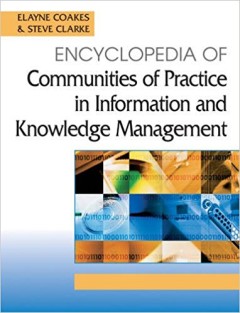
Encyclopedia of communities of practice in information knowledge management
- Edisi
- -
- ISBN/ISSN
- 1-59140-558-0
- Deskripsi Fisik
- xxviii, 601 p.
- Judul Seri
- -
- No. Panggil
- TXT MG COA e
- Edisi
- -
- ISBN/ISSN
- 1-59140-558-0
- Deskripsi Fisik
- xxviii, 601 p.
- Judul Seri
- -
- No. Panggil
- TXT MG COA e
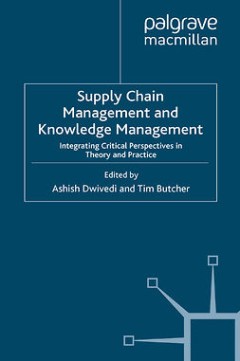
Supply chain management and knowledge management
- Edisi
- -
- ISBN/ISSN
- 978-0-230-23495-6
- Deskripsi Fisik
- xxx, 309 p.
- Judul Seri
- -
- No. Panggil
- TXT MG DWI s
- Edisi
- -
- ISBN/ISSN
- 978-0-230-23495-6
- Deskripsi Fisik
- xxx, 309 p.
- Judul Seri
- -
- No. Panggil
- TXT MG DWI s
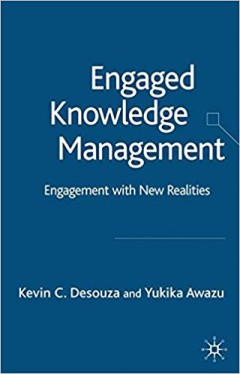
Engaged knowledge management : engagement with new realities
- Edisi
- -
- ISBN/ISSN
- 978-0-230-00607-2
- Deskripsi Fisik
- xiv, 240 p.
- Judul Seri
- -
- No. Panggil
- TXT MG DES e
- Edisi
- -
- ISBN/ISSN
- 978-0-230-00607-2
- Deskripsi Fisik
- xiv, 240 p.
- Judul Seri
- -
- No. Panggil
- TXT MG DES e
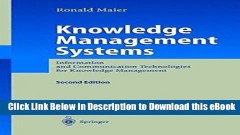
Knowledge management systems : information and communication technologies for…
- Edisi
- -
- ISBN/ISSN
- 978-3-540-24779-1
- Deskripsi Fisik
- xiv, 635 p.
- Judul Seri
- -
- No. Panggil
- TXT MG MAI k
- Edisi
- -
- ISBN/ISSN
- 978-3-540-24779-1
- Deskripsi Fisik
- xiv, 635 p.
- Judul Seri
- -
- No. Panggil
- TXT MG MAI k
The role of knowledge management in corporate
- Edisi
- Knowledge Management Summit 2017 Report
- ISBN/ISSN
- -
- Deskripsi Fisik
- 6 pages
- Judul Seri
- -
- No. Panggil
- PPT PO ELV t
- Edisi
- Knowledge Management Summit 2017 Report
- ISBN/ISSN
- -
- Deskripsi Fisik
- 6 pages
- Judul Seri
- -
- No. Panggil
- PPT PO ELV t

Electronic information transfer in a transport chain
The purpose of this paper is to assess electronic information transfer in logistics organizations. The paper approaches information transfer as an elemental component of contemporary business to business (B2B) processes.
- Edisi
- Vol. 109 No. 6, 2009 pp. 809-824
- ISBN/ISSN
- 0263-5577
- Deskripsi Fisik
- 18 p.
- Judul Seri
- Industrial Management & Data Systems
- No. Panggil
- ATC MG INK e

Electronic information transfer in a transport chain
The purpose of this paper is to assess electronic information transfer in logistics organizations. The paper approaches information transfer as an elemental component of contemporary business to business (B2B) processes.
- Edisi
- Vol. 109 No. 6, 2009 pp. 809-824
- ISBN/ISSN
- -
- Deskripsi Fisik
- 18 p.
- Judul Seri
- Industrial Management & Data Systems
- No. Panggil
- ATC LO PUL e

Library and information professionals and knowledge management: conceptions, …
The level of interest suggests that knowledge management needs to be taken seriously as an issue for information professionals and for the fields of librarianship and information science. Knowledge management is perceived to offer a substantial enhancement of the role of the information professional. However, the confusion, variations and concerns expressed indicate that knowledge management i…
- Edisi
- -
- ISBN/ISSN
- -
- Deskripsi Fisik
- 24 p.
- Judul Seri
- The Australian Library Journal
- No. Panggil
- ATC MG TOD l

Contextual factors affecting knowledge management diffusion in SMEs
Based on the knowledge management (KM) perspective, innovation diffusion theory and technology-organization-environment framework, the purpose of this paper is to develop a research model to investigate the influence of technological (information technology (IT) support and IT effectiveness), organizational (top management support, sharing culture, and reward system) and environmental (competit…
- Edisi
- Vol. 114 No. 9, 2014 pp. 1415-1437
- ISBN/ISSN
- 0263-5577
- Deskripsi Fisik
- 25 p.
- Judul Seri
- Industrial Management & Data Systems
- No. Panggil
- ATC MG LIN c

A multi-stage analysis of antecedents and consequences of knowledge managemen…
Drawing from knowledge-based view and balanced scorecard approach, this study seeks to develop an integrative model to examine the influence of two knowledge management (KM) strategies, codification KM strategy and personalization KM strategy, on the multi-stage KM evolution (KM adoption, implementation and institutionalization stages), which in turn affects balanced scorecard outcomes (financi…
- Edisi
- VOL. 18 NO. 1 2014, pp. 52-74
- ISBN/ISSN
- 1367-3270
- Deskripsi Fisik
- 25 p.
- Judul Seri
- Journal of Knowledge Management
- No. Panggil
- ATC MG LIN a

Knowledge Management For Maritime Logistics Value: Discussing Conceptual Issues
This paper introduces the concept of maritime logistics value as one of the most significant strategic goals that maritime operators want to achieve. The value is reflected in operational efficiency (e.g. reducing lead time and business costs) and service effectiveness (e.g. flexibility, responsiveness and reliability in the service). Drawing from key theories and practices in strategic man…
- Edisi
- VOL. 37, NO. 6
- ISBN/ISSN
- 1464-5254
- Deskripsi Fisik
- 22 p
- Judul Seri
- Maritime Policy & Management
- No. Panggil
- ATC MR LEE k
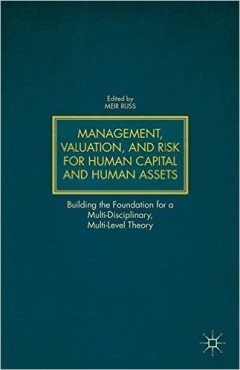
Management, Valuation, and Risk for Human Capital and Human Assets: Building …
Perspectives on Human Capital and Assets goes beyond the current literature by providing a platform for a broad scope of discussion regarding HC&A, and, more importantly, by encouraging a multidisciplinary fusion between diverse disciplines.
- Edisi
- -
- ISBN/ISSN
- 978–1–137–36094–6
- Deskripsi Fisik
- ix, 234 p
- Judul Seri
- -
- No. Panggil
- TXT MG RUS m

The role of the Atlantic corridor project as a form of strategic community of…
This paper aims to summarise the scope, methodology and main findings of a doctoral thesis about business transformation in Latin America taken from a project management (PM) and communities of practice (CoP) perspective.
- Edisi
- Vol. 3 No. 2, 2010
- ISBN/ISSN
- -
- Deskripsi Fisik
- 13 p.
- Judul Seri
- International Journal of Managing Projects in Business
- No. Panggil
- ATC LO WAL t

Learning mechanisms for humanitarian logistics
As humanitarian organizations often operate in highly volatile environments, a good understanding of their learning mechanisms would improve the knowledge acquisition and retention in these organizations, and complement the formal logistics education and training for their relief staff. The paper explores the following research question: what learning mechanisms are used by humanitarian organiz…
- Edisi
- Vol. 3 No. 2, 2013 pp. 149-160
- ISBN/ISSN
- -
- Deskripsi Fisik
- 14 p.
- Judul Seri
- Journal of Humanitarian Logistics and Supply Chain Management
- No. Panggil
- ATC LO SOU l

Implementing appreciative sharing of knowledge in the us army command and gen…
The purpose of this paper is to examine the application of Thatchenkery’s Appreciative Sharing of Knowledge (ASK) to a professional military college.
- Edisi
- Vol. 22 No. 2, 2012 pp. 119-132
- ISBN/ISSN
- -
- Deskripsi Fisik
- 15 p.
- Judul Seri
- International Journal of Commerce and Management
- No. Panggil
- ATC LO LON i

Specific competencies in humanitarian logistics education
The purpose of the research paper is to provide the humanitarian logistics community with an overall picture about competencies and skills in humanitarian logistics and if there is a lack of professionalization of the logistics function in humanitarian context from an international perspective. Further this research elaborates practical approaches how the skills and competencies can be enhanced…
- Edisi
- Vol. 3 Issue: 2, pp.99-128
- ISBN/ISSN
- -
- Deskripsi Fisik
- 32 p.
- Judul Seri
- Journal of Humanitarian Logistics and Supply Chain Management
- No. Panggil
- ATC LO ABI s

Underneath organizational health and knowledge sharing
This research excursion through shipping companies in Vietnam seeks to examine if corporate social responsibility (CSR) influences trust, which in turn engenders the chain of effects from upward influence behavior through organizational health to knowledge sharing.
- Edisi
- Vol. 26 No. 1, 2013 pp. 139-168
- ISBN/ISSN
- 0953-4814
- Deskripsi Fisik
- 32 p.
- Judul Seri
- Journal of Organizational Change Management
- No. Panggil
- ATC MG TUA u

Human resource management impact on knowledge management - evidence from the …
This article focuses on questions of organizational knowledge, human resources and the dynamics of relations developed between them, within the dominant perspectives and assumptions in people management. The literature suggests that knowledge management (KM) is not alien to the orientations adopted in the management and application of processes related to people. A strong body of literature and…
- Edisi
- -
- ISBN/ISSN
- -
- Deskripsi Fisik
- 36. p
- Judul Seri
- -
- No. Panggil
- ATC MG MEN h

The global knowledge management framework: towards a theory for knowledge man…
Our paper introduces the Global Knowledge Management Framework (GKMF) which describes components and influence factors of knowledge management in globally distributed settings. The framework identifies the key aspects when designing knowledge management processes and systems and can be used for two main purposes. On the one hand, it guides development processes by providing a solution space and…
- Edisi
- -
- ISBN/ISSN
- -
- Deskripsi Fisik
- 15 p.
- Judul Seri
- -
- No. Panggil
- ATC MG BIC t

The role of knowledge management in facilitating learning in software organis…
Software organisations have been experiencing software development failures since the start of software development. These failures include among others abandoned and runaway projects, cost overruns, and low quality software. One of the major causes of software development failure is the inability of software organisations to learn from past mistakes. Many intervention strategies have been trie…
- Edisi
- -
- ISBN/ISSN
- -
- Deskripsi Fisik
- 9 p.
- Judul Seri
- -
- No. Panggil
- ATC MG SHO t
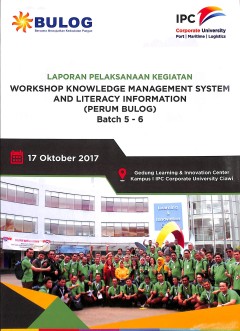
Laporan pelaksanaan kegiatan Workshop Knowledge Management System And Literan…
- Edisi
- -
- ISBN/ISSN
- -
- Deskripsi Fisik
- 13 p. + Lampiran 29 cm
- Judul Seri
- -
- No. Panggil
- IPC REP 2017 WOR w
- Edisi
- -
- ISBN/ISSN
- -
- Deskripsi Fisik
- 13 p. + Lampiran 29 cm
- Judul Seri
- -
- No. Panggil
- IPC REP 2017 WOR w

Towards taxonomy architecture of knowledge management for third-party logisti…
The purpose of this paper is to examine how the rapid pace of technological change, attrition rate, global complexities and the increasing amount of data and information available have complicated the task of managing knowledge for third‐party logistics (3PL) service providers. Based on literature, there is a need for research into the development of a generic taxonomy components framework (G…
- Edisi
- Vol. 18 Issue: 1, pp.42-68
- ISBN/ISSN
- -
- Deskripsi Fisik
- 29 p.
- Judul Seri
- Benchmarking: An International Journal
- No. Panggil
- ATC LO RAJ t

Refining information and knowledge by social media applications: Adding value…
The paper seeks to discuss how traditional knowledge refining processes differ from those enabled by using social media applications. By addressing the topic with practical examples the paper aims to outline how collaborative work setting and social media tools are used in refining unstructured and unmanaged knowledge for value adding purposes.
- Edisi
- Vol. 42 Iss 1 pp. 117 - 128
- ISBN/ISSN
- -
- Deskripsi Fisik
- 14 p.
- Judul Seri
- VINE
- No. Panggil
- ATC LO VOU r

Predictive business – fresh initiative or old wine in a new bottle
The purpose of this paper is to present a conceptual analysis of the theoretical and managerial bases and objectives of predictive business. Predictive business refers to operational decision-making and the development of business processes on the basis of business event analysis. It supports the early recognition of business opportunities and threats, better customer intimacy and agile reactio…
- Edisi
- Vol. 47 No. 10, 2009 pp. 1595-1609
- ISBN/ISSN
- -
- Deskripsi Fisik
- 17 p.
- Judul Seri
- Management Decision
- No. Panggil
- ATC LO JAL p

Knowledge-based manufacturing enterprises: evidence from a case study
The purpose of this paper is to study how managers in manufacturing firms approach the challenge of knowledge management in their organizations.
- Edisi
- Vol. 19 No. 4, 2008 pp. 447-468
- ISBN/ISSN
- -
- Deskripsi Fisik
- 24 p.
- Judul Seri
- Journal of Manufacturing Technology Management
- No. Panggil
- ATC LO ANG k
 Karya Umum
Karya Umum  Filsafat
Filsafat  Agama
Agama  Ilmu-ilmu Sosial
Ilmu-ilmu Sosial  Bahasa
Bahasa  Ilmu-ilmu Murni
Ilmu-ilmu Murni  Ilmu-ilmu Terapan
Ilmu-ilmu Terapan  Kesenian, Hiburan, dan Olahraga
Kesenian, Hiburan, dan Olahraga  Kesusastraan
Kesusastraan  Geografi dan Sejarah
Geografi dan Sejarah